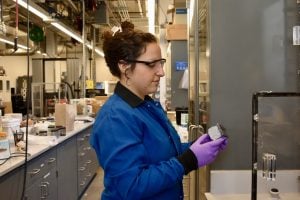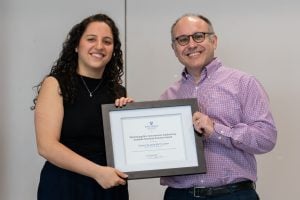Jonah Erlebacher, a professor in the Department of Materials Science and Engineering, is recognized for his advances in materials for energy technologies, computational materials science, and new methods for the manufacturing of nanostructured metals. Erlebacher joined the faculty of the Whiting School in 2000 and also holds a secondary appointment in the Department of Chemical and Biomolecular Engineering for which he served as department chair from 2014 to 2020.
Erlebacher’s current research interests include developing methods for deep decarbonization of energy technology by transforming small molecules like methane and carbon dioxide to solid carbon, and upgrading the often low-value carbon to high-value products such as fiber, structural carbon, and biochar, permanently and safely sequestering carbon (see energyinstitute.jhu.edu); exploration of novel chemical pathways to produce hydrogen that are energy effective and scalable by using experiments, process modeling, computational fluid dynamics, and building prototype reactor systems; and making and studying novel metal coatings that are simultaneously highly corrosion- and mechanical fatigue-resistant, including approaches from experimental synthesis to advanced multi-scale modeling.
Erlebacher and his group members hold multiple patents for processes encompassing the creation of nanoporous gold leaf, advanced fuel cell catalysts, and methane decomposition to hydrogen and solid carbon. He has also developed computer models to model the morphological evolution of nanostructured materials over time.
Erlebacher holds a BS in physics and history of art, summa cum laude, from Yale University (1991), and a PhD in applied physics from Harvard University (1999).



